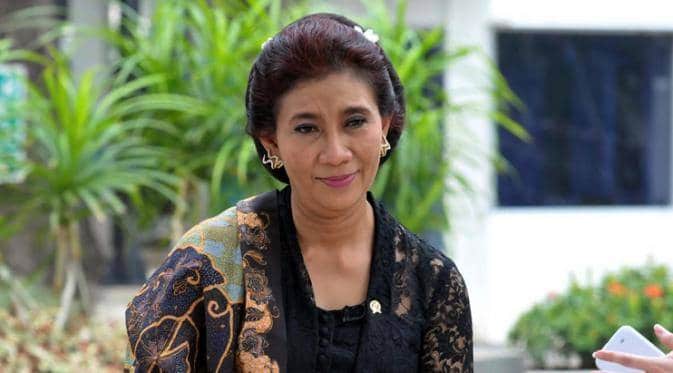
by Shaula Bellour (Indonesia) | Dec 4, 2014 | 2014, Awareness, Being Thankful, Cultural Differences, Domesticity, Expat Life, Family, Home, Husband, Indonesia, International, Kids, Life, Life Balance, Life Lesson, Living Abroad, Motherhood, Parenting, Responsibility, Shaula Bellour, Twins, World Motherhood
 This month marks our third anniversary of living in Jakarta. Considering how empty our house was when we first arrived here, I am staggered at how much stuff we have acquired in that short time.
This month marks our third anniversary of living in Jakarta. Considering how empty our house was when we first arrived here, I am staggered at how much stuff we have acquired in that short time.
We initially started out with garden chairs as living room furniture and took our time furnishing our new space. Though the house isn’t exactly cluttered, it feels full – and I feel daunted by the sheer volume of STUFF that seems to fill every closet and drawer.
It’s the never-ending tide of cheap party favors, orphaned toy and game parts, and plastic galore. It’s the piles of paper: children’s artwork, old receipts, and unfinished magazines. It’s all the things I never use or wear, the boxed objects I might use one day and the stock of (US-bought) items I think I can’t live without.
Moving from the US to East Timor 5 years ago was a great opportunity to clear things out and scale back. Although I did feel a little sad watching an expectant dad cart away our twins’ disassembled cribs the night before we moved, it felt good to sort through our accumulated belongings and assign categories: donate, sell, ship or store.
Donating unwanted items was easy. I arranged for a pick up with a local charity group, stacked everything on my porch and it was all magically whisked away. We sold our car and other big items, sent friends home with plants and other housewares and shipped our edited possessions to Dili.
Everything else went into our storage unit. A few years later I visited it for the first time and was amazed by what we’d deemed worth keeping at the time. I randomly peeked in a few boxes and found…sweaters. Lots of sweaters. What was I thinking? It was winter at the time and we didn’t know how long we’d be away, but still.
We also stored our furniture, though we recently realized that the cost of storing it for the last five years has probably exceeded its value. While visiting the US, my husband spent a day digging out furniture and giving it all away – couches, tables, lamps, washer/dryer…everything. I was thousands of miles away at the time but it felt fantastic.
Leaving East Timor prompted a similar purge. And yet here I am again, feeling the urgent need to reduce and simplify.
Here in Jakarta, this process isn’t as straightforward. While it’s fair to say that nothing will ever go unused, getting rid of unwanted items isn’t as simple as piling them on the porch. I frequently give outgrown kids’ clothes and shoes to friends or neighbors, donate household items to women’s association charity shops, or leave things out to be upcycled by our handcart-pulling bin man.
Last month my children got involved and we went through their toys, books and clothes and filled 10 bags with donations for a local orphanage. Though it was good for them to be part of this process, I would also really like for them to see where their donations are going and consider giving back in other ways (time, money, materials etc.).
Although I will never be a minimalist (or a light packer…), I’m committed to scaling back and am hopeful that this is a first step toward living with less.
A quick internet search reveals hundreds of creative ways to de-clutter, organize and simplify our homes – and ultimately our lives. We are told that having too much stuff is draining and overwhelming us, that we are wasting too much time and money managing our things and that getting rid of all this stuff can make our lives richer and happier.
All of this may be true, but for me the bigger question is about how to acquire less stuff in the first place.
Clearly I don’t have the answer yet, but it’s definitely something I would like to explore and practice – starting now.
Please share your strategies and tips to get me started!
How do you minimize/manage the “stuff” in your house and life? Do you have any tips for living with less?
This is an original post for World Moms Blog by Shaula Bellour.
Shaula Bellour grew up in Redmond, Washington. She now lives in Jakarta, Indonesia with her British husband and 9-year old boy/girl twins. She has degrees in International Relations and Gender and Development and works as a consultant for the UN and non-governmental organizations.
Shaula has lived and worked in the US, France, England, Kenya, Eritrea, Kosovo, Lebanon and Timor-Leste. She began writing for World Moms Network in 2010. She plans to eventually find her way back to the Pacific Northwest one day, but until then she’s enjoying living in the big wide world with her family.
More Posts

by Maureen | Nov 20, 2014 | 2014, Awareness, Being Thankful, Elections, Eye on Culture, Feminism, Government, Indonesia, Inspirational, Media, News, Politics, Prejudice, Respect, Scoops of Joy, Women's Rights, World Motherhood

Susi Pudjiastuti, Minister of Maritime and Fisheries
Big changes are taking place in Indonesia lately with the new President Joko Widodo (or as we Indonesians lovingly call him, Jokowi) taking office last month.
Six days after he took office, Jokowi announced his cabinet lineup to the public. Eight women out of a total of 34 have been elected as ministers. It was the highest number of female cabinet ministers that has ever been elected in our country’s history and demonstrates Jokowi’s courage in giving women an opportunity.
Gender equality opportunity seems to have a brighter future with this cabinet lineup.
One of the women ministers that has been elected is Susi Pudjiastuti. She was elected as Minister of Maritime and Fisheries.
The media have been talking about Susi all of a sudden. She even became a trending topic on Twitter. Her election as a minister created a big controversy here.
She was not someone that came from any political affiliate. She is a bit different compared with some other women in world politics, like Hillary Clinton or Angela Merkel; she is a business woman. She smokes, she doesn’t have a PhD or any prestigious titles lined up behind her name – she actually dropped out of high school and unlike some others, she didn’t drop out of school because she was poor, it was actually because she felt she wasn’t happy even when she was reportedly a bright student. She decided to follow her own path at the tender age of 17.
With roughly $75, she started her first entrepreneurship in Pangandaran, Central Java with a fishery business. In 1996 she formed her own company called PT. ASI Pudjiastuti Marine Product. After her business expanded throughout Asia and America, she realized she needed a fast and reliable way to transport the seafood products to the buyers. Then Susi Air was born. She built her own aviation company even obtaining her own pilot license. Her airline now serves publicly in many remote parts of Indonesia.
Sadly, the media coverage she received was not because of her achievements or the many awards she has received over the years. The media coverage arose because she has tattoos, because she smokes, is a social drinker and a single mom, formerly married to Caucasian men twice.
Her detractors started judging her personal life, discrediting her ability to hold her role as a minister while she jumped head first into her new job in the government and making the necessary changes.
Among the negative comments however there also has been a lot of support for Susi. I am one of those big supporters.
In my eyes, I see a strong woman, someone very capable and who seems to have a strong character and is very intelligent despite her lack of a college education. Being a successful, independent single mother will really inspire other single mothers in Indonesia. We now have the first single mother minister in the history of Indonesia.
For the Indonesian patriarchy system, this feels like a big breakthrough and already she is busy working hard to fix the maritime and fisheries industry. Jokowi believes in her and that she has what it takes to get the job done and to create breakthroughs.
Jokowi is leading the way by giving Susi Pudjiastuti and the rest of the women minister an opportunity to take important roles in the government.
I salute all of these women and wish them all the best in their new roles.
There are many women involved in politics worldwide these days. Do any female politicians inspire you? What do you think of the increased number of women’s involved in politics?
This is an original post to World Moms Blog from our writer and mother of one in Indonesia, Maureen.
The image used in this post is from Susi Pudjiastuti’s public Facebook page. You can view more images of the politician here.

by Shaula Bellour (Indonesia) | Sep 25, 2014 | 2014, Childhood, Expat Life, Family Travel, Holiday, Indonesia, Shaula Bellour, Twins, UK, Uncategorized, USA
 From the window, I can hear high-pitched giggles and the sound of wellington boots on garden path gravel.
From the window, I can hear high-pitched giggles and the sound of wellington boots on garden path gravel.
My daughter is next door with her new neighbor friend, pretending that the garden shed is an animal rescue center and the backyard chickens are actually wild monkeys. My son is bouncing on a trampoline with the friend’s big sister and I can see their carefree bodies flying above the wheat fields, in the shadow of the village church.
It’s past their usual school-night bedtime, but the sun is still high and we’ve stopped keeping track of these things anyway. Evidence of the day’s activities is scattered on the grass: badminton birdies, a rainbow of half-finished loom band bracelets, a decorated cardboard lean-to and sticky signs of an earlier snail race.
Both kids return with dirty feet and ice cream on their faces and I’m pretty sure they forgot to wash their hands after petting the donkey across the road. But it’s okay. It’s the summer holidays in rural England and it feels like the stuff childhood is made of. The only catch is that it’s not where we live…
Life is a series of trade-offs.
Back in Jakarta, we’re on our way to school and my children want to know why we don’t live in England. “Well…because we live here”, I respond simply, feeling a sharp pang of guilt. I go on to explain that day-to-day life in England would probably be different than the idyllic summer version. For example, instead of playing all day, they would have to go to school and soon the long sunny days would turn cold and wet. “That’s okay!” they chirp, happily unconvinced.
Luckily the conversation shifts and together we watch the city float past our car window. The daily mosaic of life here is colorful, chaotic and always fascinating. We read shop signs, point out our favorite kaki lima food carts and compete to find the most interesting motorcycle cargo…from pallets of baby chicks to enormous balloon bundles.
We talk about their new school classes and where all the children are from, realizing that there are nearly as many nationalities as students. We think about where we might like to travel for their half-term break and marvel at how lucky we are to be so close to so many amazing destinations.
Life is a series of trade-offs.
Sometimes, I feel sad about the fact that our children are growing up so far away from their grandparents, aunts, uncles and cousins. But then I am also reminded that since our family is both British and American, we will always be far from someone we love regardless of where we live. We do the best we can to stay connected and are grateful for the precious time we get to spend together.
Occasionally, I see photos of my friends’ frolicking children and feel a twinge of regret that my own kids are missing out on the places and experiences I enjoyed as a child growing up in the US.
But then I examine my own assumptions…does their childhood need to resemble my own for it to be good? Of course not. My children may not learn to ski anytime soon, but they are seeing and doing so much more than I ever dreamed of at their age.
Life is a series of trade-offs.
I tell myself that we are lucky to enjoy the best of both worlds. But in reality, we can’t have it both ways.
This is the path we’ve chosen and there are limitations as well as benefits. Accepting these trade-offs brings a certain kind of relief and shifts the focus — emphasizing what we have instead of what we’re missing.
It’s a process, but I’m getting there.
How do you and your family balance life’s trade-offs?
This is an original post for World Moms Blog by Shaula Bellour.
Photo Credit: ClairOverThere. This image holds a Flickr Creative Commons attribution license.
Shaula Bellour grew up in Redmond, Washington. She now lives in Jakarta, Indonesia with her British husband and 9-year old boy/girl twins. She has degrees in International Relations and Gender and Development and works as a consultant for the UN and non-governmental organizations.
Shaula has lived and worked in the US, France, England, Kenya, Eritrea, Kosovo, Lebanon and Timor-Leste. She began writing for World Moms Network in 2010. She plans to eventually find her way back to the Pacific Northwest one day, but until then she’s enjoying living in the big wide world with her family.
More Posts

by Maureen | Sep 18, 2014 | 2014, Awareness, Childhood, Communication, Divorce, Family, Husband, Indonesia, Kids, Life Lesson, Motherhood, Parenting, Relationships, Scoops of Joy, Single Mother, World Motherhood, Younger Children
Divorce is difficult for adults. Divorce is difficult for children. It is difficult for everyone. No doubt about it. I had sailed through it. Not a smooth sailing – mind you – but I learnt so much through the process. (more…)

by Ana Gaby | Aug 7, 2014 | 2014, Indonesia, Parenting, Younger Children

World Mom Ana’s son
I thought I had been lucky enough to avoid them, I thought we would breeze through, I thought it didn’t run in the family, after all, my older son never had a tantrum. Oh boy, was I wrong. In the past few weeks my 2 year old, Joshua, has revealed a side of him I had never experienced before. The terrible two year old has unleashed and this inexperienced mama is in trouble! Don’t get me wrong, Joshua is still the sweet little guy he’s always been but when something doesn’t go his way, he is prompt to express his discontent. The repertoire includes high-pitched screams, kicks, a few encounters with the floor and a bite here and there.
I keep saying to myself that this attitude is product of our current transition. We recently left Indonesia and are slowly making our way back to Virginia where we will settle down for a while. Everything that Josh knows, his home, his friends, his school, his nanny are no longer here and I sometimes feel guilty for making them go thru this. We are having a wonderful time visiting friends and family however as familiar as grandparents and close friends are, I think Josh is still getting acquainted to his surroundings and feeling a bit disoriented.
I get it, if I was a two-year old with a repertoire of but a few words to express myself I would probably rely on physical manifestations to show my feelings. The part I don’t quite get is how to deal with it sometimes. Since I didn’t get any expertise with my now four year old, Evan, I am a bit clueless as to what to do every time he freaks out sometimes.
I’ve done my research and I’ve found all kids of tips and strategies, ignore the tantrum, distract him, engage him in conversation, hug him, give him a time out, etc. But what I’ve found works best is just to look at him in the eyes with the biggest smile and ask him to use his words and express what is bothering him. The result is a mix of English, Spanish and Bahasa Indonesia that somehow ends up overpowering the cries and anguish this little two year old feels and I get my Joshie back.
To be completely honest, I don’t particularly like this stage; it is frustrating and exhausting and sometimes outright exasperating. But then when I see my energetic two year old run around and make the best of his day, I realize how blessed I am to have such an amazing little man in my life and I choose to make the best of my day and savor every single second of this season in Joshua’s life.
For this family, the world terrible will be banned and even those “terrible” moments will be terrific learning experiences for both him and me. Here’s to savoring the last few moths of Joshua’s terrific twos and to being grateful every day for God’s endless blessings.
Did your kids go thru the “terrible twos”? How did they manifest it? Did all your kids go through them?
This is an original post written for World Moms Blog by Ana Gaby. You can find Ana Gaby blogging at Stumble Abroad.
Photo credit to the author.
Ana Gaby is a Mexican by birth and soul, American by heart and passport and Indonesian by Residence Permit. After living, studying and working overseas, she met the love of her life and endeavored in the adventure of a lifetime: country-hopping every three years for her husband’s job. When she's not chasing her two little boys around she volunteers at several associations doing charity work in Indonesia and documents their adventures and misadventures in South East Asia at Stumble Abroad.
More Posts

by Maureen | Jul 24, 2014 | 2014, Eye on Culture, Indonesia, Scoops of Joy, World Motherhood

An Indonesian father with child
Would you believe me if I tell you I have NEVER heard of Father’s Day until I moved to America in 2005.
Yes, true story!
Here in Indonesia we just simply don’t have Father’s Day.
We do have Mother’s Day on December 22, 2014. The holiday is celebrated on the anniversary of the opening day of the first Indonesian Women Congress, which was held from 22 to 25 December 1928. The Congress was attended by 30 feminist organizations from 12 cities in Java and Sumatra. In Indonesia, feminist organizations have existed since 1912, inspired by Indonesian heroines of the 19th century, e.g., Kartini, Martha Christina Tiahahu, Cut Nyak Meutia, Maria Walanda Maramis, Dewi Sartika, Nyai Ahmad Dahlan, Rasuna Said, etc. The Congress intended to improve women’s rights in education and marriage.
We also have Kartini Day on 21 April to celebrate the emancipation of women spearheaded by an activist, Raden Ajeng Kartini.
So why do we have no Father’s Day then?
Could it be because we as a country are already too patriarchy?
I actually wonder about that too. So like a good citizen, I turned to Google and did a little research.
What do you know, actually we do have one and it’s called “Hari Ayah” in Indonesian which means Father’s Day. It was declared in 2006 it falls on 12 November. That explains why very few people are aware of this and it’s not popular. Maybe because we don’t commercialize it as much as mother’s day? I have never seen an advertisement for local Father’s Day.
Technically, men still perceived to have higher place than women in Indonesia. Like it or not, that’s the truth. We are still plagued by social injustices caused by a male-dominated society that abandons women to the whims of their husbands. So maybe that’s why it is more ‘common’ to celebrate Mother’s Day.
Being from a whole intact family unit of a father and a mother doesn’t guarantee that the father is always hands-on, and I think this happens in many different countries, too. I have personally seen mentally checked out fathers who leave all the responsibilities of raising children solely to their wives by justifying they are too busy making a living for the family. Many men still believe their fatherhood role is simply to provide for the family and that’s it. I feel for women who literally are acting as single parents in a married-life.
Being a mother myself, I can truly appreciate a man who helps out his wife. I celebrate hands-on fathers, like my own father. My father is a strong dominant male figure to me and many people will be surprised by how hands-on he has been. I can still recall him changing my brothers’ diapers, doing the dishes (something he still does to this very day!) and other domestic chores without complaining, going to the market for my mother and many more. He was even actively involved in our schools’ boards. He works hard, yet, he was and is always there.
And now seeing my own younger brother being very hands-on in caring, raising his first daughter truly warms my heart. My sister-in-laws’ friends pointed out that their own husbands do not even want to change diapers, but my brother changes diapers and more.
This made me realize how lucky we are to have our father as a big role model who set great living standards of what a great father is like.
So although Father’s Day is not hugely popular here, I salute all men who break the stereotype of fatherhood in my country. Hats off to you!
When do you celebrate Father’s Day in your country? How do you celebrate Father’s Day?
This is an original post by our World Mom, Maureen of “Scoops of Joy” in Indonesia for World Moms Blog.
Photo Credit: http://www.stockvault.net/photo/152311/asian-child-with-father

 This month marks our third anniversary of living in Jakarta. Considering how empty our house was when we first arrived here, I am staggered at how much stuff we have acquired in that short time.
This month marks our third anniversary of living in Jakarta. Considering how empty our house was when we first arrived here, I am staggered at how much stuff we have acquired in that short time.















